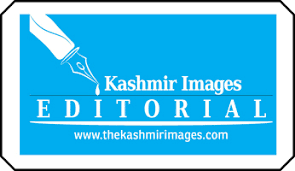As the clock ticks down to October 24, the biennial elections for Jammu and Kashmir’s four long-vacant Rajya Sabha seats have transformed from a routine procedural affair into a high-wire act of political brinkmanship. Vacant since February 2021, frozen in the limbo of the Union Territory’s reconfiguration post-Article 370—these polls mark the first Upper House contest in the J&K since 2019. With the 88-member Assembly (effective strength after vacancies) as the electoral college, the math is unforgiving, a majority of 45 votes secures a seat. Yet, beyond the numbers lies a tangle of alliances, betrayals and quid pro quos that could redefine J&K’s fractured political land.
National Conference (NC), led by Chief Minister Omar Abdullah, has boldly fielded candidates across all four seats. The aggressive posture follows a spectacular implosion in its INDIA bloc alliance with the Congress, which opted out after NC refused to cede a, “safe” seat. Congress J&K chief lambasted the move as a “betrayal,” accusing NC of sidelining its six MLAs despite pre-poll assurances.
The rift, now spilling into threats of solo runs in upcoming bypolls for Budgam and Nagrota seats, highlights a deeper malaise: NC’s perceived high-handedness in coalition dharma, leaving Congress seething or potentially abstaining from voting altogether. NC’s numerical edge 42 MLAs plus independents and CPI(M) support, totaling 53 positions it to clinch three seats likely under separate notifications. The fourth, under a combined poll, is the battleground, where BJP’s 28 MLAs give it a slim lead (28 vs. NC’s 24 in that tranche).
Meanwhile, BJP, has nominated its 3 candidates banking on either cross-votes or abstentions, to take at least one. Omar Abdullah has framed the contest as a litmus test: “This election will show who is with the BJP and who is against it. Abstentions are votes for the saffron party.” It’s a gauntlet thrown at rivals, but one that risks backfiring amid the web of smaller players.
Enter the kingmakers: the independents and fringe parties holding pivotal votes. People’s Conference (PC), with one MLA, has slammed the door shut, chairman Sajad Gani Lone announced his party will abstain entirely, vowing, “I would rather die than vote for NC,” while accusing Omar of denying Congress a seat on BJP’s behest. Awami Itehad Party (AIP) lone MLA is yet to disclose his intentions, jailed AAP MLA Mehraj Malik’s vote hangs in judicial balance, with his counsel petitioning the High Court for polling access.
Amid this scrum, Peoples Democratic Party (PDP) emerges as the wildcard, dangling its three MLAs like a bargaining chip. President Mehbooba Mufti, responding to Farooq Abdullah’s personal outreach, has conditioned support on NC’s backing for two PDP private members bills pending in the Assembly, the Land Rights and Regularisation Bill, 2025 and the Regularisation of Daily Wagers Bill. The former, an “anti-bulldozer” shield, seeks to legalize properties occupied for over 30 years on state or pasture lands, averting evictions for thousands of poor families. The latter targets job security for daily wagers in departments like Power, Health, and Irrigation as workers earning a pittance of Rs 8,000 monthly after decades of service. Mufti’s calculus is stark: “If they help pass one or two of these bills, we can think about supporting NC”. It’s a stroke, elevating bread-and-butter issues above partisan loyalty, especially as the Assembly session kicks off October 23 just a day before voting.
Passing PDP’s measures could burnish NC’s welfare credentials, blunt BJP’s “anti-poor” barbs, and secure those crucial votes. Refusal, however, invites accusations of elitism, further eroding the fragile opposition front against Delhi. Mufti’s bills spotlight unfulfilled promises, free electricity, ration, jobs that Omar’s regime has cited “statehood delays” to dodge. The polls expose NC’s coalition frailties, BJP’s opportunistic math, and the smaller parties’ leverage in a zero-sum game. With jailed votes, abstentions, and conditional pacts in flux, the outcome could hand BJP an unlikely foothold or force NC into populist concessions.
As ballots are cast, J&K’s leaders must remember: these seats aren’t trophies but lifelines to amplify a silenced voice in Parliament. Prioritizing people over power, backing bills that shield the vulnerable, might just restore faith in a democracy.


